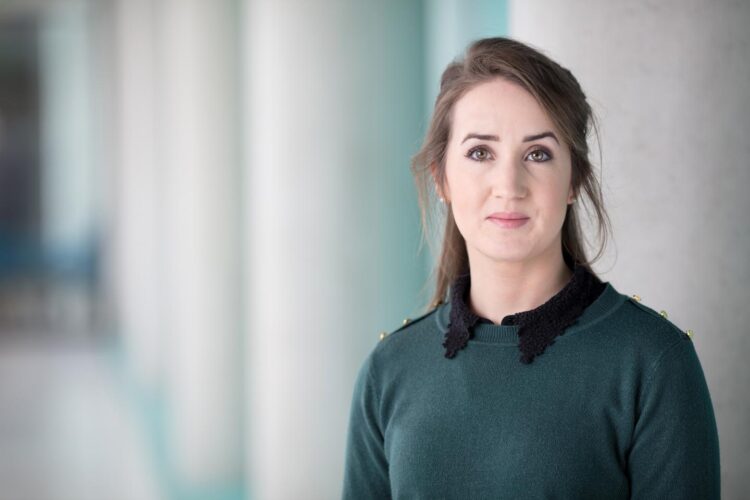New insights could lead to new therapies for COVID-19
DUBLIN, June 15, 2021 – Scientists have identified how and why some Covid-19 patients can develop life-threatening clots, which could lead to targeted therapies that prevent this from happening.
The work, led by researchers from RCSI University of Medicine and Health Sciences, is published in the Journal of Thrombosis and Haemostasis.
Previous research has established that blood clotting is a significant cause of death in patients with Covid-19. To understand why that clotting happens, the researchers analysed blood samples that were taken from patients with Covid-19 in the Beaumont Hospital Intensive Care Unit in Dublin.
They found that the balance between a molecule that causes clotting, called von Willebrand Factor (VWF), and its regulator, called ADAMTS13, is severely disrupted in patients with severe Covid-19.
When compared to control groups, the blood of Covid-19 patients had higher levels of the pro-clotting VWF molecules and lower levels of the anti-clotting ADAMTS13. Furthermore, the researchers identified other changes in proteins that caused the reduction of ADAMTS13.
“Our research helps provide insights into the mechanisms that cause severe blood clots in patients with Covid-19, which is critical to developing more effective treatments,” said Dr Jamie O’Sullivan, the study’s corresponding author and research lecturer within the Irish Centre for Vascular Biology at RCSI.
“While more research is needed to determine whether targets aimed at correcting the levels of ADAMTS13 and VWF may be a successful therapeutic intervention, it is important that we continue to develop therapies for patients with Covid-19. Covid-19 vaccines will continue to be unavailable to many people throughout the world, and it is important that we provide effective treatments to them and to those with breakthrough infections.”
###
This work was funded by Irish COVID-19 Vasculopathy Study (ICVS) through the Health Research Board COVID-19 Rapid Response award as well as a philanthropic grant from the 3M Foundation to RCSI University of Medicine and Health Sciences in support of COVID-19 research.
About RCSI University of Medicine and Health Sciences
RCSI University of Medicine and Health Sciences is a world-leading university for Good Health and Well-being. Ranked second in the world for its contribution to UN Sustainable Development Goal 3 in the Times Higher Education Impact Rankings 2021, it is exclusively focused on education and research to drive improvements in human health worldwide.
RCSI is an international not-for-profit university, headquartered in Dublin. It is among the top 250 universities worldwide in the World University Rankings (2021) and its research is ranked first in Ireland for citations. RCSI has been awarded Athena Swan Bronze accreditation for positive gender practice in higher education.
Visit the RCSI MyHealth Expert Directory to find the details of our experts across a range of healthcare issues and concerns. Recognising their responsibility to share their knowledge and discoveries to empower people with information that leads them to better health, these clinicians and researchers are willing to engage with the media in their area of expertise.
Media Contact
Michael Sullivan
[email protected]
Related Journal Article
http://dx.





